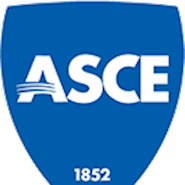Peter Ackers, a renowned British hydraulic engineer whose works helped set standards for the industry, has died. He was 97.
Ackers, MSc(Eng), M.ASCE, majored in civil engineering at the City & Guilds of London Institute (part of Imperial College) during World War II. The CE program was condensed due to the war, yet one whose widened scope included matters such as air-frame design, which could be useful in the war effort.
After graduating, Ackers worked for the National Physical Laboratory, where he carried out research into composite steel and plastic struts. He was then transferred to Bristol Aeroplane Company, where he worked on the designs of the Bristol Freighter and Brabazon aircraft.
In 1946, when wartime employment controls were relaxed, Ackers was able to begin his civil engineering career in earnest. He spent 18 years at the Hydraulics Research Station (now HR Wallingford) and rose to the position of assistant director. His practical engineering hydraulics accomplishments included work on flumes and weirs, and a defining book on the subject.
Ackers then went on to develop the Wallingford tables, the ultimate set of hydraulic design tables for pipework. With Rodney White, he developed the Ackers-White sediment transport equation, and this novel approach still provides one of the best representations of the transport of noncohesive materials. He wrote or contributed to some 70 other technical papers and publications.
Ackers later joined Binnie & Partners, where he led a hydraulics team that tackled hydraulics problems from across the globe. Between 1973 and 1983, he combined his Binnie work with a visiting professorship at his alma mater, Imperial College. In 1984, he began a 10-year run as a freelance hydraulics consultant for a number of other engineering consultancies.
He specialized – indeed delighted – in creating simple innovative solutions to complex issues. He had an incisive mind that could quickly break down complexity into manageability with a view to understanding the overall picture. For all of his intellect, he was a quiet and humble man who, in leadership, was supportive and always had time to listen and advise in a paternal way. Many students and colleagues remain grateful for his help in making problems resolvable given the right approach.
Besides ASCE, Ackers was a fellow member of the Institution of Civil Engineers. He also became active in the Institution of Water Engineers and subsequentially became an honorary fellow of CIWEM.



